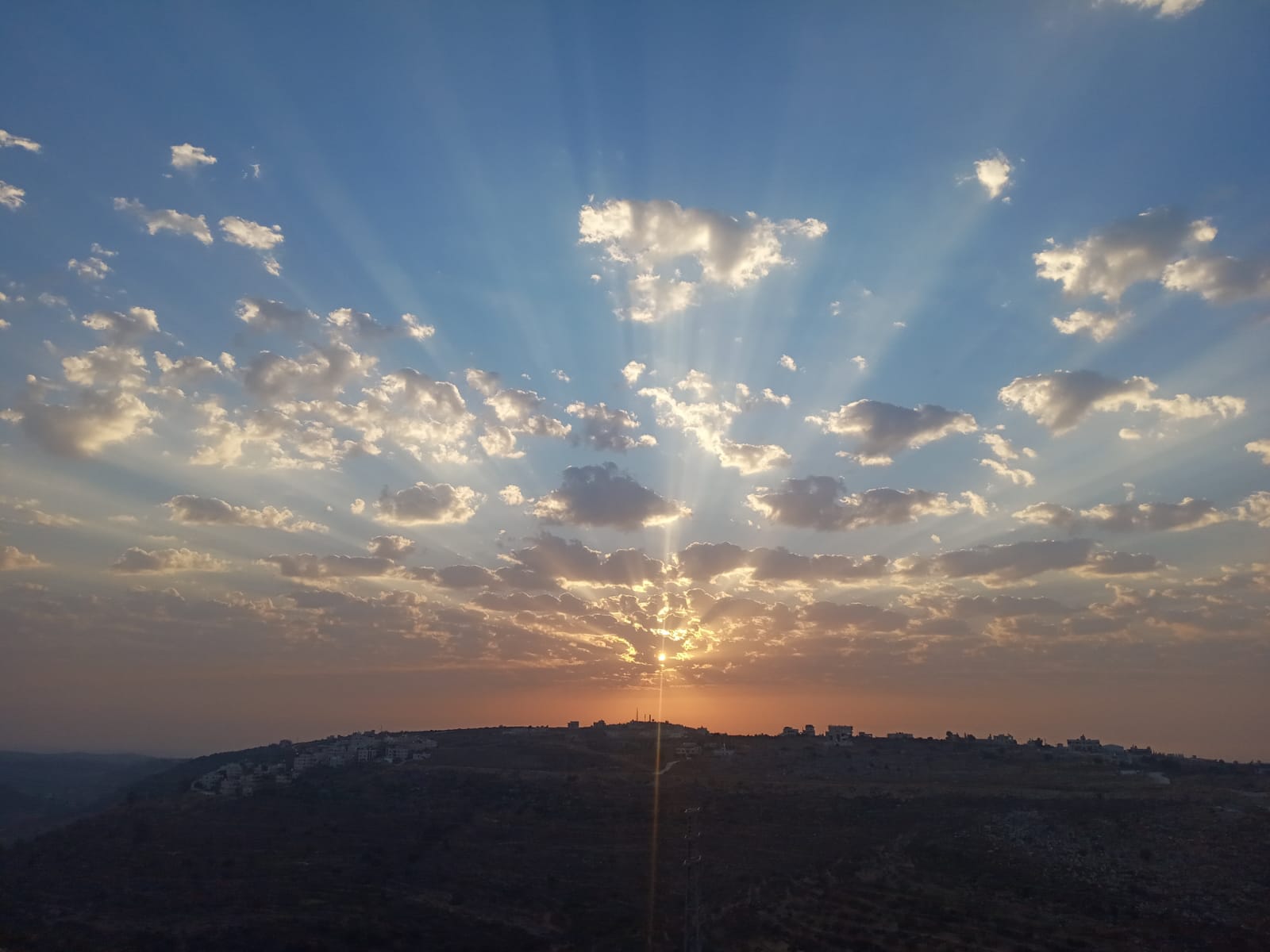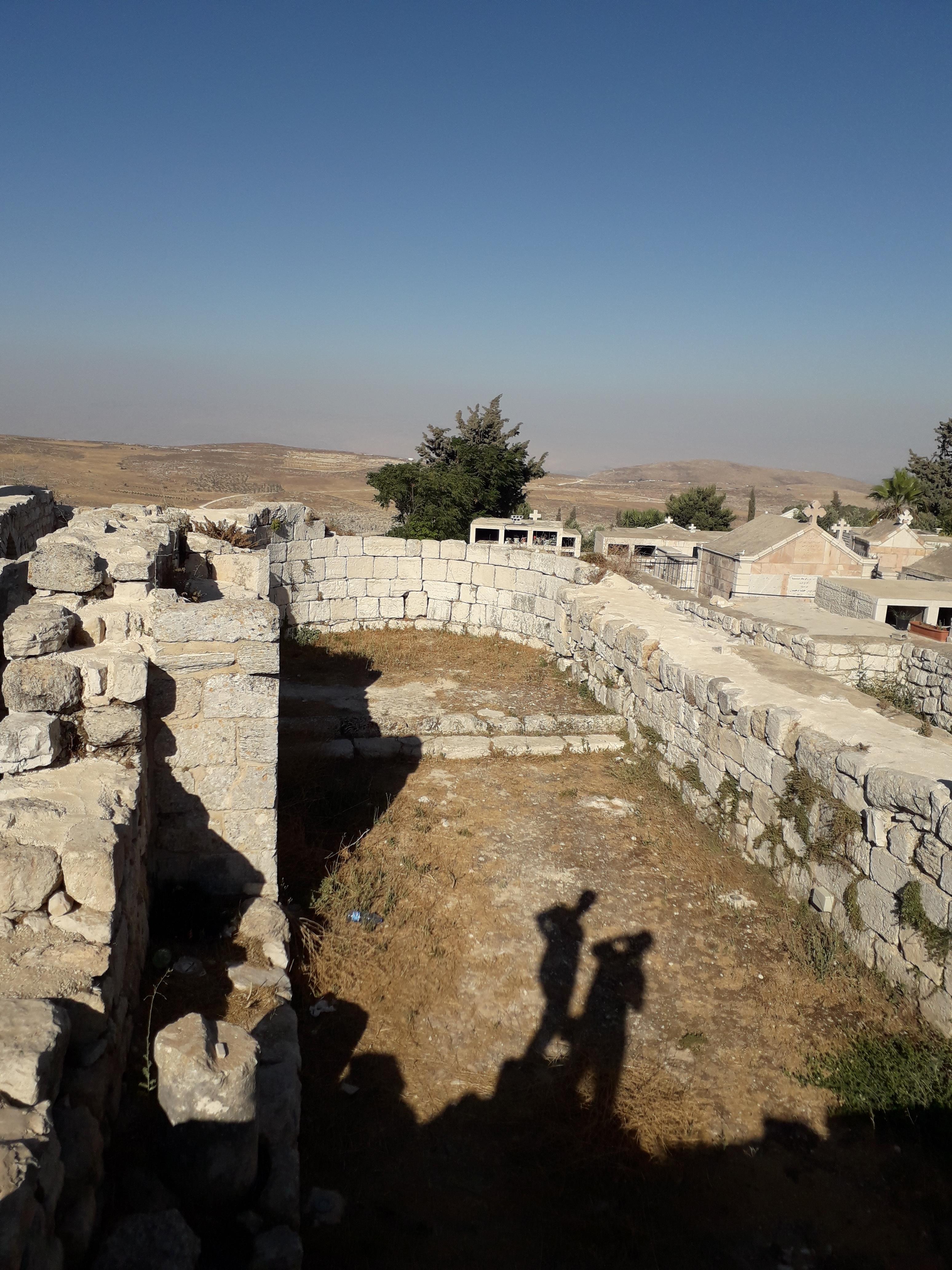Story
Do you know that the Bible has been translated many times into Arabic within both Jewish and Christian communities? The earliest Arabic translations of the Bible date back to the nineth century CE. Many of these early precious translations remain barely accessible today.
My project brings these important texts to light and documents how they are understood today by Muslim readers of the southern West Bank who cherish biblical figures as local prophets of the Land of the Bible. Through their Traditional Knowledge we are gaining insights never achievable at scholarly desks.
By contributing to this long-term project, you are not only advancing scholarship but also creating rare opportunities for paid intellectual work for parts of the local society particularly affected by unemployment, such as women with higher education degrees.
Click ‘read story’ / scroll down to learn more.

Hello! My name is Dr Jakub Zbrzeżny – please call me Jakub (handling my surname is not easy!). I work in the field of Biblical Studies as a Lecturer in Second Temple Judaism, that is, ancient Jewish religion around the time of Jesus, in the Divinity Department at the University of Aberdeen.
Originally from Poland, I had lived for over four years in Israel and Palestine before coming to Aberdeen in 2022. It is there that I discovered my passion for the rural Arabic dialect of al-Khalīl / Hebron in the southern West Bank, which I proudly speak – with a strong Eastern-European accent!
But this project - Arabic Readings of Biblical Traditions - is not about my language skills but about making the still little-known pre-modern Arabic Bible accessible through its digitization (from manuscripts to text files) and documenting how the Bible is understood through the lenses of its local Arabic readers, whose Traditional Knowledge, especially concerning agriculture, can shed new light on this ancient text. Thanks to our Khalīli Project Partners we are getting insights never achievable at desks in our libraries in the West.
I deeply believe that scholarship is a common good. Indeed, my work is already sustained, to some degree, by you if you are a taxpayer in the UK. However, in my personal view, there is still too little awareness in the society about how much each of us is actually contributing towards driving scholarship forward. This should be appreciated more. Thus, I feel obliged and happy to say thank-you to you right now. If you would like to go the extra mile and make a further contribution to this particular scholarly project, you are very welcome to do so. Even more, I would love you to join the mailing list of the project to be not just its financial contributor but a friend.

Context
If hosted by Muslim friends in towns and villages of the rural areas of the West Bank, you will quickly notice that your hosts are deeply fond of and familiar with stories of the Bible, devotedly cherish biblical figures, and have Arabic translations of the Hebrew Bible and New Testament, whose volumes are shown the same reverence as the Qurʾān.
Aim
This project aims to explore and document how such ‘non-expert’ and yet ‘traditionally knowledgeable’ Muslim readers from rural areas of al-Khalīl (Hebron in Hebrew) understand the Jewish and Christian Scriptures as preserved in the pre-modern Arabic Bible, which still awaits scholarly exploration. This sheds light on just on the ancient text, but also in intercultural and interreligious Scriptural dynamic in the region and beyond.
Method
To this end, a trusted and closely befriended group of five siblings from one of the Khalīlī clans transcribe selected manuscripts of the pre-modern Arabic Bible, the fruit of Jewish and Christian Arab scholarship, uninfluenced by modern Western missionaries, and then render the transcribed text into their own rural Khalīlī dialect, exemplifying a popular reading of the biblical text. The rendition is subsequently translated by me into English with relevant annotations.
Progress as of September 2025
[1] The Book of Genesis:
100% transcription (c. 20,400 words) = Ch. 1-50
100% dialect rendition (c. 26,000 words) = Ch. 1-50
completed thanks to, among others, a British Academy Talent Development Award (£9,889) and the Department of Near Eastern Studies at Cornell University ($5,000)
[2] The Gospel according to Matthew:
100% transcription (c. 12,000 words) = Ch. 1-28
50% dialect rendition (c. 7,300 words) = Ch. 1-13
completed thanks to, among others, a University of Aberdeen Pump Prime Research Funding (£10,062) and University of Aberdeen Impact & Engagement Accelerator Fund (£2,000)
Goal
The current aim of the project is to reach its first milestone by completing the dialect rendition of the Gospel according to Matthew.
Following the initial institutionally funded projects, the cost of completing Genesis and Matthew is estimated at c. £4,500 in total.
Having both Genesis and Matthew completed will greatly facilitate my applications for major research grants (£100,000-150,000). Such grants would allow my University not just to continue contracting my local Project Partners but also to employ post-doctoral fellows as research assistants for this project. I do believe in teamwork!
It is appreciated that you may wish to contribute to work on some other biblical texts. We can certainly discuss that - please see contact details below.
Institutional Funding & Public Fundraising
Combining institutional research funding with public fundraising is still not very common, but this pairing has grown in popularity as the 'crowdfunding' model of fundraising has become mainstream. It actually has a famous British precedent. It is thanks to the Public that the British Museum was able to acquire the Codex Sinaiticus (one of the oldest manuscripts of the nearly complete Bible) from the Soviet Union in the thirties. Thus, one of the greatest cultural treasures of human civilization had been preserved from destruction or disappearance in the hands of private collectors. Free of charge, you can see it today in person in the Treasures Gallery in the British Library or online here. For details about this fascinating story see here.
Contact
For any questions, feel free to get in touch with me at my institutional email address (jakub.zbrzezny@abdn.ac.uk) or give me a call at my work number (+44 1224 272385). You will find my academic profile here.
You are also very welcome to join the mailing list of this project if you are interested in following how it develops. To opt in (or later opt out), simply drop me a message at the email address given above. Sharing a mailing list also makes it a bit more personal!
Notes
[1] This research project does not serve any political or religious agenda. None of its participants is involved in any form of "activism". The only aim of this project is to advance scholarship. Its indirect impact beyond academe pertains to contributing towards the preservation and appreciation of rural dialects of Arabic and other languages (like Scots or Gaelic). It also creates meaningful and safe job opportunities in the area of an extremely high unemployment, particularly among young educated women (as four out of our five project partners).
[2] In order to avoid a situation in which a conflict of interest or power imbalance arises in relation to this campaign, I kindly request that University of Aberdeen students or staff members who wish to contribute to this project do so without providing their name in the relevant box after clicking ‘Give now’.
[3] As a full-time employee (lecturer) at the University of Aberdeen I receive a regular salary from my institution. Grants or philanthropic donations related to this and other research projects that I lead do not add to my personal income, but allow the University of Aberdeen to contract approved suppliers who provide professional services (such as translation or language and culture consultancy) for my projects or to employ research assistants.
[4] If this campaign brings more than £4,500, all additional funds will be used towards expanding the project to other biblical books. In the event of collecting less than that, the donated funds will be used towards making further progress on the text of Genesis and Matthew (advanced editing). I continue searching and applying for further institutional funding and updates will be posted on this page (note, however, that academic funding bodies usually need at least six months to consider all applications submitted to particular calls; timescales for larger grants are even longer).
[5] In the unlikely event of the outbreak of a new war in the Middle East that would prevent our Project Partners from being able to work safely, the funds will be put on hold until the situation enables the resumption of work. Further, if for any reason I become incapable of leading the project (e.g. death, illness, compulsory redundancy) (God forbid!), arrangements will be made for fulfilling the original purpose of the funds.
[6] On a more positive note: if you were wondering about the image with the Arabic text used above, it is a snippet from the manuscript with the siglum "Arabe 1", which is held today in the Bibliothèque nationale de France in Paris. The snippet shows the initial verses of the Book of Genesis (can you find the word Light?). This manuscript is used in our project. It has a fascinating history – you can read about it in Ronny Vollandt’s ‘Arabic versions of the Pentateuch: a comparative study of Jewish, Christian, and Muslim sources’ (2015), which you will find in good academic libraries. You can access the manuscript here (public domain).
[7] Finally, if you were also wondering about the photographs, these are all by me - the selfie taken in the Old City in Jerusalem / al-Quds, and the sunsets photographed from the hills around Ramallah, originally an Arab Christian town and today a mixed Muslim-Christian city. Many thanks to my brother Rafal Zbrzeżny for making the top collage - something beyond my skills! Now, can you guess where the last photo given below was taken? Here are two hints for you. Firstly, it is also not far from Ramallah and the shadows of me and one of my Project Partners are cast towards Jordan - almost in a straight line to Amman. Secondly, you can see the ruins of a Byzantine church, where Christians, often assisted by a Muslim butcher, offer to God thanksgiving animal sacrifices until today. It is a wonderful example of local grassroots interfaith dialogue - and action.

